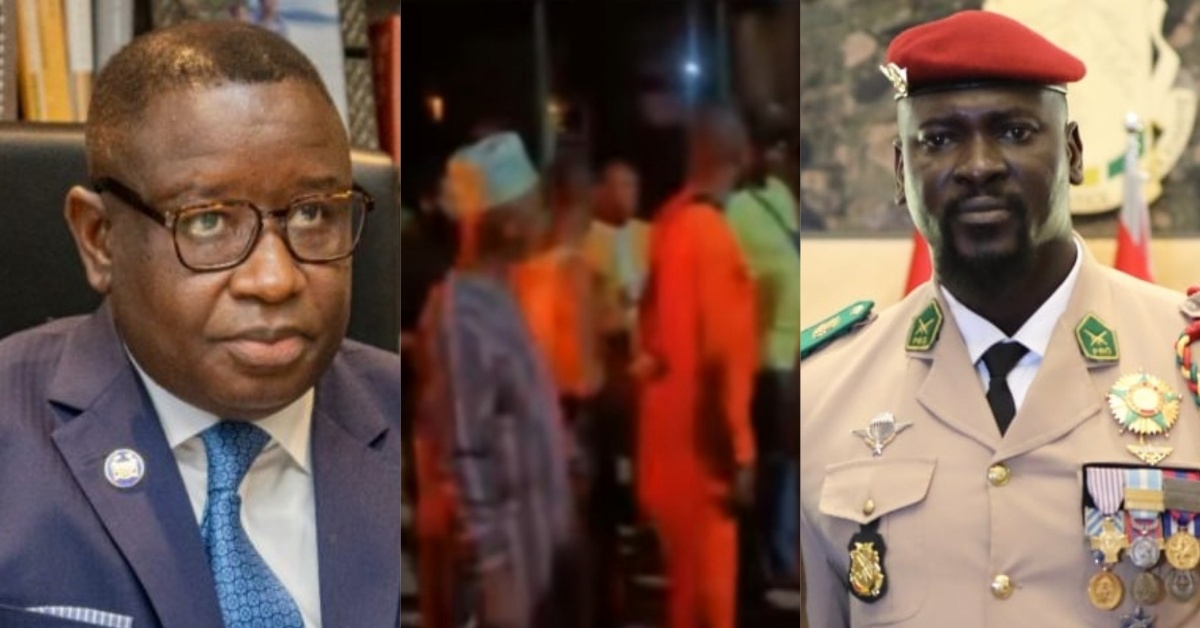In the past few days, social media has been filled with videos of Sierra Leoneans said to have been deported from Guinea. Different stories have been told about why they were deported. Some people believe it is a political move meant to silence certain individuals eyeing the presidency.
Whether this is true or just another conspiracy theory is unclear.
At the same time, reports came out that Sierra Leone Police Force ordered the arrest of foreign nationals, mainly targeting Fullahs.
It was a sad and frightening situation.
Armed police officers, some wearing masks, raided homes and arrested people, demanding identification cards.
Many Fullahs were arrested without clear reasons.
Strangely, no one in authority is ready to explain who gave the police such orders.
Even the Inspector General of Police (IGP) could not confirm who authorized the raids.
This leaves the public wondering who is truly in charge of security operations in the country.
The government eventually released a press statement condemning the police actions and promising an investigation into the unlawful arrests and attacks.
But why did it take public outrage for the government to act? Shouldn’t the IGP and senior police officials have been on top of the matter from the start?
The lack of clear leadership and coordination raises serious concerns about how the country is being governed.
A Fullah man shared a painful story about how the police stormed his relative’s home in Calaba Town.
Armed officers arrested Fullah bread sellers outside the house. His relative resisted being taken, but many others were not as lucky.
He questioned why Fullahs are always targeted when there are many other foreigners in Sierra Leone without proper documents.
The government’s failure becomes even more concerning when we consider the role of Sierra Leone’s High Commissioner to Guinea.
Why has there been no clear statement from the High Commissioner regarding the deportations from Guinea? Shouldn’t Parliament summon the High Commissioner to explain what happened and what steps were taken to protect Sierra Leoneans in Guinea?
President Bio reportedly expressed his dissatisfaction with how Guinean authorities treated Sierra Leonean citizens, when an envoy from Guinea visited him some days ago.
But wouldn’t it be more effective if both President Bio and Guinea’s military leader, Colonel Doumbouya, sat down for a direct and open discussion about the growing tension?
Leadership at the highest level is needed to resolve such a serious issue before it spirals out of control.
Sierra Leone has always been a land of mixed tribes and cultures. Almost every ethnic group in the country has roots in other countries.
Mandingoes trace their ancestry to Guinea and Mali. Kissis have links to Liberia.
Even the Krio people celebrate their Nigerian and Gambian heritage.
If all these groups can proudly acknowledge their foreign roots without facing discrimination, why should Fullahs be treated differently?
Our history is full of examples of leaders with foreign roots who were respected and trusted. Former President Ahmad Tejan Kabbah, who had Mandingo roots in Guinea, was never questioned about being a true Sierra Leonean.
Franklyn Bode Gibson, whose parents came from Nigeria and The Gambia, became the Mayor of Freetown without facing such hate.
So, why this sudden hatred toward Fullahs?
Is it because of politics or something deeper?
If these arrests were about enforcing immigration laws, why weren’t other foreigners targeted too?
The government only spoke against the police raids after the Fullah Association publicly condemned the attacks.
Why wait until people complained before acting? This situation has opened old wounds of ethnic discrimination in Sierra Leone. It is shameful and dangerous for the future of our country. Sierra Leone belongs to all its people, no matter their ethnic backgrounds.
Those responsible for this unlawful targeting must be held accountable.
Being a Fullah is not a crime. Being a Sierra Leonean should mean having equal rights, not being judged by your last name or your tribe.
This is not the country we want for ourselves or our children.
We can and must do better.












Sierraloaded is fooling the people.
Una de make things too high n create tension.
Wow it’s so interesting and ofcause I also mentioned this same thing just after the day the Fullah community were arrested for deportation , I think there is nothing other than political fight.